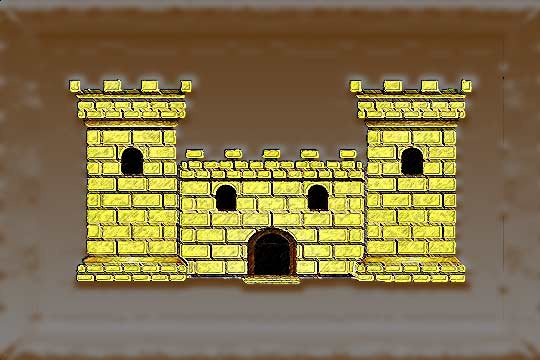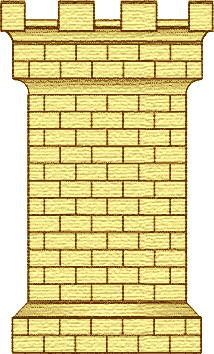Antiparos, Antiparos, Cyclades,South Aegean
Castle of Antiparos
| Location: |
| At the center of the village Oliaros at the northern part of Antiparos island in Cyclades |
| Region > Prefecture: |  |
| South Aegean Cyclades | |
| Municipality > Town: | |
| City of Antiparos • Antiparos | |
| Altitude: | |
| Elevation ≈ 20 m |
| Time of Construction | Origin | |
| 1440 | VENETIAN |
|
| Castle Type | Condition | |
| Island Citadel |
Rather Poor
|
The castle was created by the Venetians in the 15th century. It is a fortified settlement similar to other medieval settlements in Cyclades but with some special characteristics one of which is that it is not built on a high and prominent location.
History
Antiparos was inhabited since antiquity, when its name was “Oliaros”.
Later it was part of the Byzantine empire until 1207 when it became part of the Duchy of Naxos under the Venetian noble Marco Sanudo who was appointed lord of the Cyclades.
Apparently the Venetians did not pay much attention to the island which by the beginning of the 15th century was a pirate base and haven. This changed when lord of the island became Giacomo Lorentano who had married Maria Somarripa from the family of the rulers of Paros.
Loentano brought new inhabitants to the island on his own expenses and built the castle in 1440 which had a very specific and unique style of architecture. The houses form a compact complex with 24 two-story houses forming the outer zone, while at the centre there is a motte or mound.
The castle and the island remained in the House of Lorentano until 1480 when they were given as a dowry to Domenico Pisani, son of the Duke of Crete who had married Fiorenza the daughter of the Duke of Naxos.
The island was looted by the Ottoman pirate Hayredin Barbarossa in 1537. After that, it became a possession of the Crispi family (from Naxos) and in 1566 was occupied by the Ottomans (permanently, until 1832).
Structure, Fortification & Buildings
The Venetian Castle of Antiparos is a typical example of the fortified settlements established in the Cyclades during the Venetian period, 13th-16th century.
The original version had a ‘motte’ (mound) at the center and houses round the perimeter. The houses were built as one continuous block construction, the outer walls providing both the defensive wall of the fortified settlement. The only entrance was at the south wing. Inside the main settlement the houses developed as three-storey structures, each having a separate entrance which lead to external staircase. Later, the settlement was extended outside the south wing to form a rectangular ring called “Xopyrga” and within the original enclosure around the base of the circular tower.
During the centuries, the original form of the castle has changed, with the church of Christ being inserted as a religious element, while the central mound was used as a water tank tower.
Today, the homes retain a satisfactory level of their original features, despite the collapse of the upper floors, and any intervention required permission from the archaeological department. Today most homes are developed in one with two floors and have a maximum ground-like trapdoor. Many now face outwards and have become shops facing onto the main street.
As a general comment, a lot of the elements of the original settlement are still there, but very few things remind a castle: the remains of the gate, some arches, venetian emblems in some houses and the ruins of the central tower.
| First entry in Kastrologos: | November 2012 | Last addition of photo/video: | March 2021 |
Sources
- Website νήσος Αντίπαρος - Κάστρο (Greek only)
- Photos 1, 5, 7, 8, 9 Sagoundon, July 2009
|
|
| Access |
|---|
| Approach to the monument: |
| The entrance is at the north of the central square of Oliaros, behind the cathedral. |
| Entrance: |
| The castle is part of an inhabited village and there is no question of entrance or opening hours. |
| Other castles around |
|---|
| Tower of Alisafides |
| Castle of Kephalos |
| Fort of Naousa |
| Castle of Parikia |











